Have you ever caught yourself staring at the colorful array of superfoods in your pantry, like the protein-packed quinoa, and wondered, Can dogs eat quinoa? In the world of health-conscious eating, quinoa has emerged as a nutritious powerhouse for us humans. But when it comes to our furry friends, what benefits or risks does this ancient grain hold? In this article, we delve into the details of quinoa, its potential benefits for our canine companions, and the precautions to keep in mind before introducing it into your dog’s diet. Buckle up for a fascinating journey into the world of dogs and quinoa.
Can Dogs Eat Quinoa?
Yes, dogs can eat quinoa. Whether you are on a diet or you are looking to improve your health,. Quinoa is one of the main food sources that should always be part of your diet. It is packed full of healthy carbohydrates, proteins, and other good nutrients.
Fortunately, quinoa is already a staple in the diet of many dogs. You can look at the backs of many different dog foods and you will find quinoa listed as one of the main ingredients in the food. Quinoa is a tasty addition to your dog’s diet, but some people have concerns about a natural chemical that could be unhealthy for dogs.
If you love quinoa, you might have some leftover food after having dinner. Instead of wasting it, it can be a good idea to add some to your dog’s diet. We have done some in-depth research to find out the benefits and drawbacks of adding some quinoa to the diet of your loving dog.
Is Quinoa Safe For Dogs?
Overall, quinoa is a safe option you can feed your dog. However, there are a couple of things to keep in mind when feeding it to your dogs. Quinoa features a naturally occurring chemical called saponin, which is like an insect repellent. Saponin is produced by the quinoa plant as a method of keeping it safe while the plant grows from insects.
However, it can also lead to some digestive issues for your pet when they overconsume the food. It is most common in dogs when the quinoa is not thoroughly cooked, which leads to significant stomach issues. However, when it is cooked perfectly, the saponin will be softer, which makes it easier to pass through the digestive system.
Another issue with quinoa is the calories. Quinoa is one of the most calorically dense foods and it is considered a starchy carbohydrate. Even though it includes things like protein and some fiber, the bulk of the calories are made up of carbohydrates. You must control the calories in your dog and too much quinoa could spike it significantly.
Benefits Of Quinoa For Your Dog

Now that you have seen some of the dangers and how they could negatively affect your dog, you might also want to take a look at some of the many benefits. There are a few great benefits that quinoa brings to the table in humans and dogs. Even a small serving should be great when you are looking to improve the health of your dog.
Packed Full Of Vitamins And Minerals
Quinoa might be dense in calories, but it has plenty of vitamins and minerals that your dog needs. Zinc, magnesium, potassium, copper, B-vitamins, and manganese are only a few of these incredible vitamins and minerals. It should be satisfying and serve as a form of cheat to add plenty of these additional minerals to their diet.
Improves Their Wellbeing
When you combine these benefits, you will find that adding quinoa to your diet will support a healthy and shiny coat. It can strengthen their teeth and nails while also improving their bone density and strength. These will help them be happier and healthier, which tends to make your dog much more active.
Improves Daily Activities
We all need some form of energy to support our daily activities and ensure that we stay healthy and active. Quinoa is perfect for this because it has fiber, which can improve metabolism. Some of these minerals and vitamins also combine to improve the mental health of dogs, and it could ensure that dogs feel much better. A healthy and active dog is often a happy dog.
Makes Meals More Satiating
One of the main reasons that quinoa is added to dog food is to make the food more satiating. Quinoa is calorie-dense, but it also fills you up much more than other starchy carbohydrates. The more your dogs feel full, the less inclined they will be to graze, which could lead to overeating. An obese dog is certainly something you don’t want to deal with when they grow older and health issues become significant.
Feeding Quinoa To Your Dog
Unlike fruits and vegetables we often recommend as snacks, quinoa is a bit different. Unfortunately, you cannot give them as much quinoa as you would other foods due to the high number of calories and the density of the food. It is often better to avoid feeding pets snacks with lots of carbohydrates that could lead to overeating.
One of the most important things you need to do is consult your vet. The vet should let you know how much quinoa you can feed your dog and where you should add it. From personal experience, I have noticed that most vets will not even encourage you to add quinoa to their diet and often recommend you stick to their food.
There should be enough carbohydrates and vitamins in the food you buy to keep the dog sustained and make sure they don’t need to deal with any issues. A dog eating too many calories should not eat things like quinoa. It could also cause some digestive issues, and you will find yourself visiting your local vet to sort it out.
FAQs
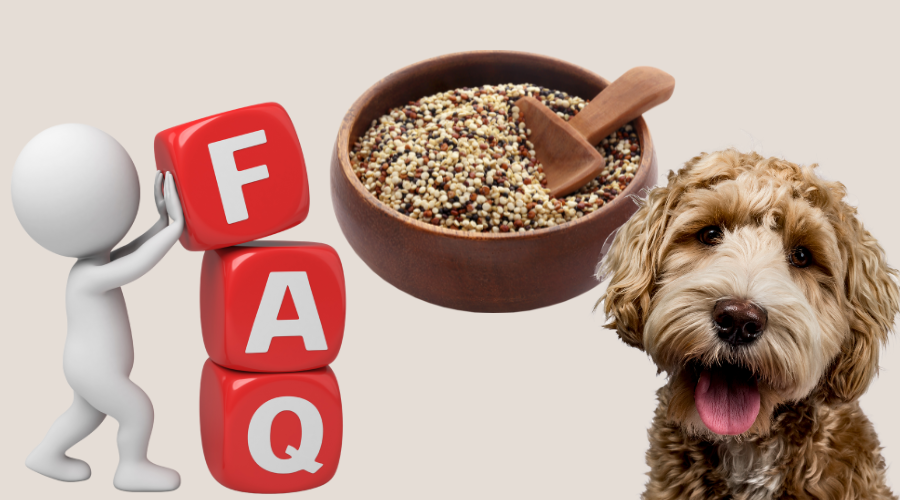
Is quinoa toxic to dogs?
No, quinoa is not toxic to dogs. It’s a nutrient-rich food that can provide a healthy, low-fat addition to your dog’s diet when properly prepared. However, like any other human food, it should be offered in moderation and should not replace a balanced canine diet.
Can puppies eat quinoa?
Yes, puppies can eat quinoa, but it’s best to introduce it slowly and in small amounts. Young dogs have sensitive digestive systems, and introducing any new food too quickly can lead to tummy troubles. Always ensure that the quinoa is thoroughly cooked to aid digestion.
Can quinoa cause allergies in dogs?
While quinoa is generally considered safe for dogs, it is possible for dogs, like humans, to develop an allergy or intolerance to any food, including quinoa. If your dog shows signs of an allergic reaction like itching, hives, or digestive problems, stop feeding them quinoa and seek veterinary advice.
Can I replace my dog’s regular food with quinoa?
While quinoa is nutritious, it should not replace your dog’s regular diet. Dogs require a balanced diet with the correct proportions of proteins, carbohydrates, fats, vitamins, and minerals. Quinoa can be an occasional addition to their diet but should not be the main source of nutrition.
How should I prepare quinoa for my dog?
Quinoa should always be thoroughly rinsed under running water to remove saponins, a naturally occurring coating that can cause digestive issues. Once rinsed, it should be cooked according to package instructions – typically boiling in water until soft – before being offered to your dog.
Can quinoa help my dog gain weight?
Quinoa is high in protein and complex carbohydrates, so it could potentially contribute to weight gain in underweight dogs when combined with a nutritious, balanced diet. Always consult with a veterinarian when you’re trying to manage your dog’s weight or make significant dietary changes.
How much quinoa can I feed my dog?
The quantity of quinoa you should feed your dog will vary depending on factors like their size, age, and overall health. As a rule of thumb, quinoa should not make up more than 10% of your dog’s daily caloric intake. Starting with a small amount, like a tablespoon, and adjusting as necessary is a good approach.
Can dogs eat quinoa daily?
While quinoa is safe for dogs to eat, it’s best to serve it as an occasional treat or supplement rather than a daily part of their diet. Serving quinoa too often could lead to an imbalance in your dog’s nutrient intake, as quinoa doesn’t contain all the nutrients that dogs need.
Can dogs eat cooked quinoa?
Yes, dogs can eat cooked quinoa. In fact, raw quinoa could be hard for them to digest and can contain substances that could be harmful to them, so it’s important to always serve quinoa cooked.
Can dogs with kidney disease eat quinoa?
Quinoa is a low-phosphorus food, which makes it a potentially good choice for dogs with kidney disease. However, kidney disease is a serious condition that should be managed under the guidance of a vet. Always consult your vet before introducing new foods to a dog with a chronic health condition.

















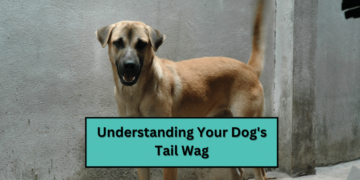

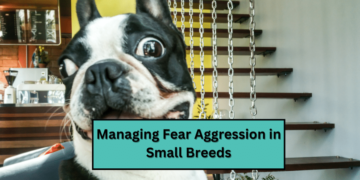















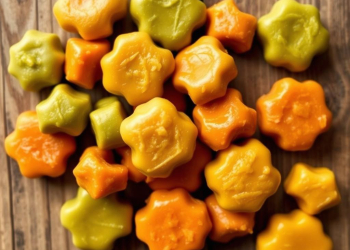



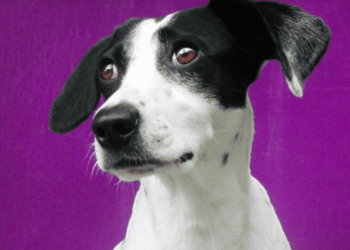








Discussion about this post